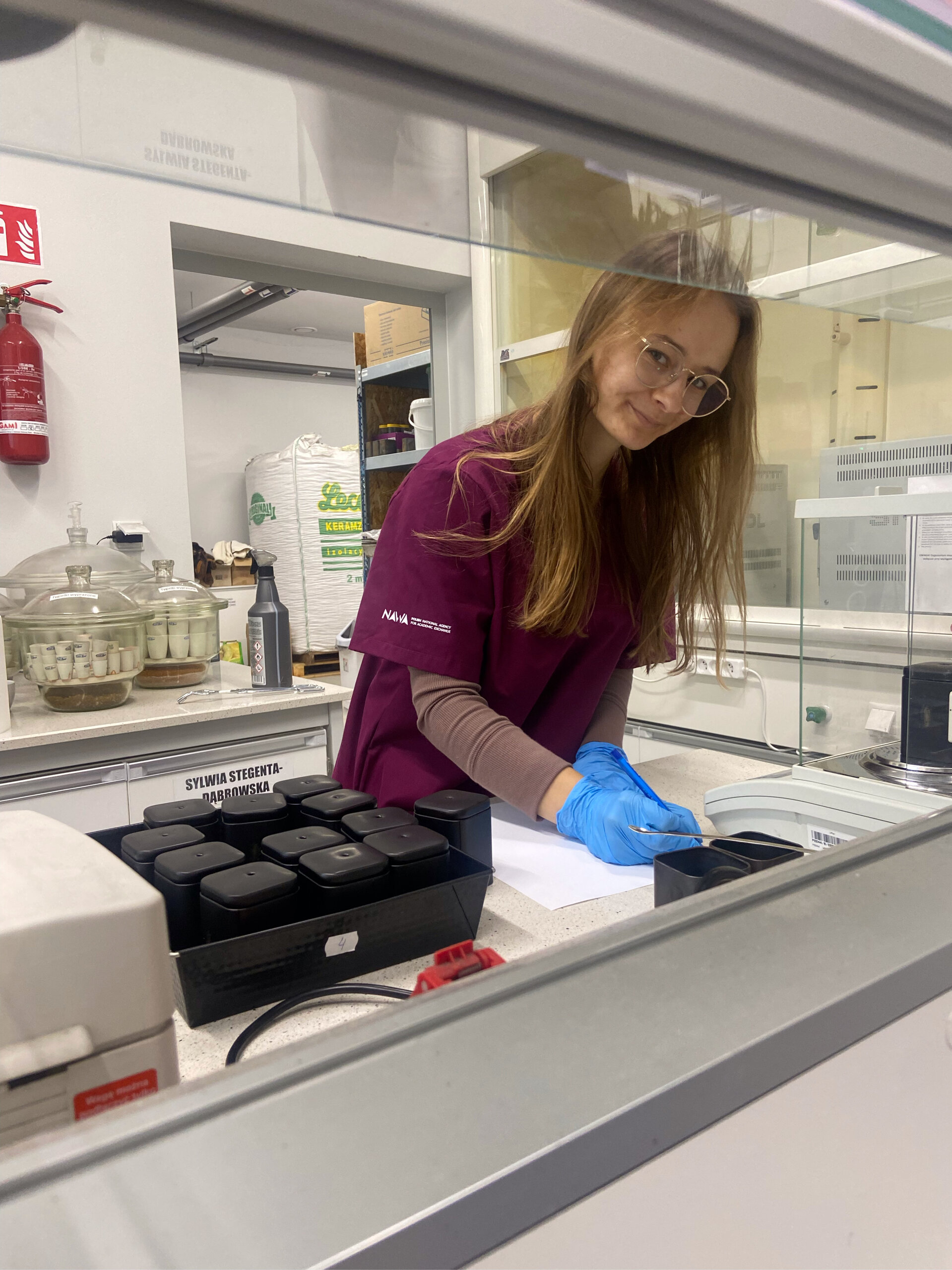– The PhD programme was not obvious to me– says Małgorzata. – During my master’s studies, after applying for the Young Minds competition, I was told about the competition for the position of PhD student within the Preludium BIS 2 project. Without a master's degree, I got into the Doctoral School.
– I guess I always wanted to do something that matters – admits the doctoral student. – I have always been interested in science, and I wanted to pursue an engineering programme and also study something related to environmental protection. Living in harmony with nature was important to me. During the bachelor’s and master’s programmes, I had very good teachers who got me interested in the subject of waste management.
Małgorzata’s doctoral project within Preludium BIS 2 concerns the emission of volatile organic compounds from carbonized solid fuel produced via torrefaction from municipal solid waste. Torrefaction is a process similar to roasting, carried out at a temperature of 200-300°C.
We know that this can produce valuable solid fuel, but we do not know what disadvantages this process may bring. The emission of volatile organic compounds is one of the problems that started to appear in publications lately. The PhD student’s job is to find out how these volatile organic compounds are emitted from the carbonized fuel. Małgorzata studies 10 components of municipal solid waste and their mixtures. Using those components she will make a model that will be validated during her internship in Texas, the USA with the assistance of prof. Jacek Koziel, who is her 2nd supervisor.

Volatile organic compounds are hazardous, especially for people who work in the area where the solid fuel is stored. They can enter the human body in three ways: through the skin, through inhalation, and through the digestive system. The effects of that may vary. The greatest undesirable consequence is cancer of the respiratory system. But there are other threats to people’s health: irritation of the mucous membranes, eyes, nausea and malaise. With prolonged exposure to these compounds, the impact on health may be considerable.
– I produce the carbonized solid fuel myself in our laboratory and in the chemistry laboratory I will test the emission of volatile organic compounds. Everything takes place here at the university, except for validation. The validation will show how my results obtained at UPWr compare to the emissions of volatile organic compounds from actual municipal solid waste.
So far, Małgorzata has been able to do part of the torrefaction and produce part of the carbonized solid fuel. She is waiting for the first part of the volatile organic compounds emission test execution to match the appropriate indicators, and also to determine the fuel properties of the derived product.
– Young Minds, the project I was involved in during my master’s studies, concerned the hydrothermal carbonization of organic waste, with an emphasis on the liquid fraction generated from this process, from which it is possible to obtain phosphorus and nitrogen. These are elements that are both burdensome and very valuable at the same time, as they are exhaustible and non-renewable. There is a shortage of those elements because of the increasing number of people in the world and excessive consumption. During hydrothermal carbonization, hydrochar which can be used as an alternative solid fuel is formed - says Małgorzata when asked about her other scientific experiences.
The Doctoral student did not have doubts about the science centre where she wanted to do her PhD.
– The Department of Applied Bioeconomy where I work provides great development opportunities that may not be found even abroad. I decided to continue my studies at UPWr because I knew my supervisor – prof. Białowiec and his achievements. We definitely have great scientists here. Having someone to learn from is crucial. In my department, there is an atmosphere of cooperation. We congratulate each other on our achievements and support each other in different projects.
After completing her PhD, Małgorzata wants to continue with her scientific career in the waste management or sustainable development fields. However, she does not exclude the possibility of working in R&D or as a data scientist. During the PhD programme, PhD students have to deal with a lot of data that needs to be constantly processed.